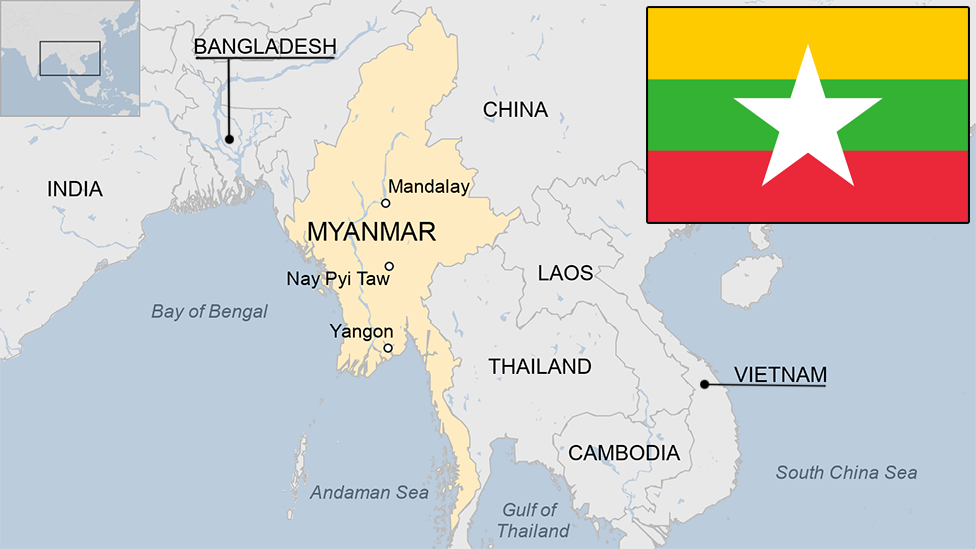'Ghost ship' in Myanmar: Navy finds answers
- Published
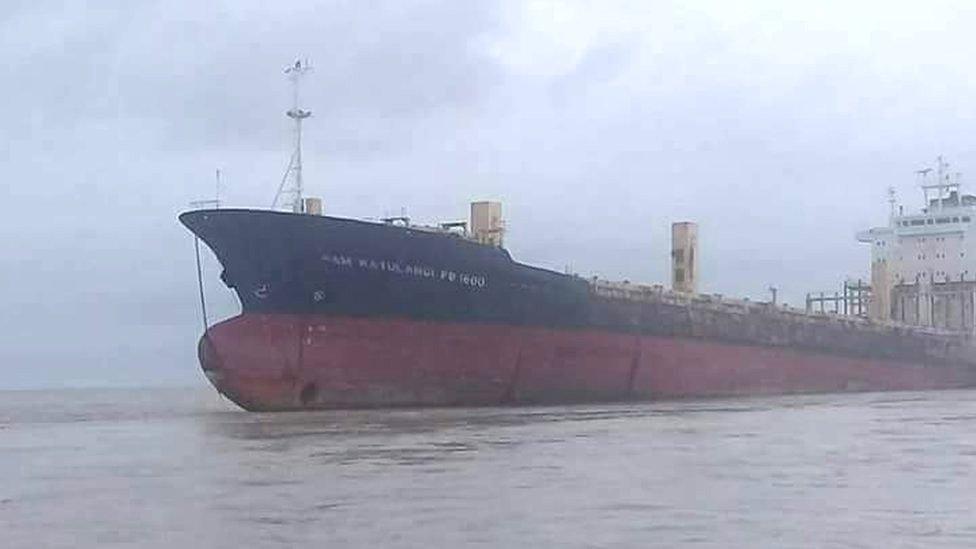
The Sam Ratulangi PB 1600, built in 2001, is more than 177m long
Myanmar officials investigating a "ghost ship" found mysteriously drifting near the Yangon region this week have found the answer to its fate.
The large, empty and rusty container vessel, Sam Ratulangi PB 1600, had been discovered by fishermen off Myanmar's commercial capital.
The navy now say the freighter was being towed by a tugboat headed to a ship-breaking factory in Bangladesh.
However, the crew abandoned the ship after being caught up in bad weather.
Authorities and navy personnel had boarded the Sam Ratulangi PB 1600 on Thursday to search for clues after it ran aground on a beach.
Police and observers were baffled at how such a large ship, with no sailors or goods on board, had ended up in Myanmar.
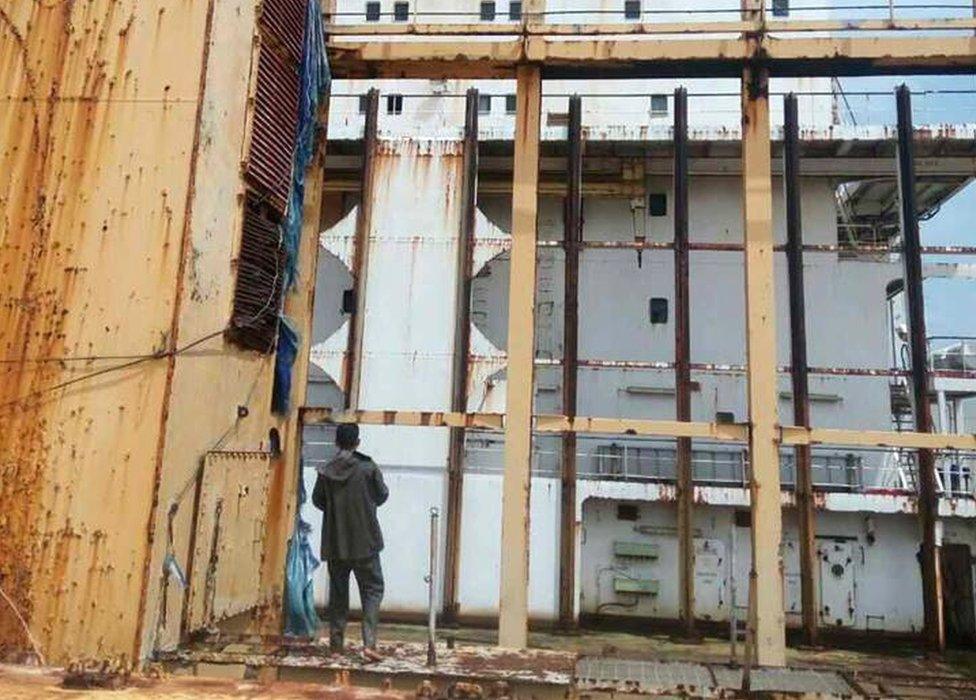
The container ship was described as being in a working condition
The vessel, which was built in 2001, is more than 177 metres (580 ft) long, external, according to the Marine Traffic website, which logs the movements of ships around the world.
The ship's location was last recorded off the coast of Taiwan in 2009, and this was the first reported instance of an abandoned ship appearing in Myanmar's waters, according to the AFP news agency.
On Saturday, Myanmar's navy said it suspected the ship had been towed by another ship after "two cables... were found at its head".
They later found a tugboat, called Independence, about 80km (50 miles) off Myanmar's coast.
After questioning the 13 Indonesian crew members on board, they learned that the tugboat had been towing the vessel since 13 August, and intended to take it to a factory in Bangladesh that would dismantle and salvage the ship.
However, some of the cables attached to the boat broke in bad weather, and they decided to abandon the ship.
The authorities are investigating further.
The owner of the tugboat is thought to be from Malaysia, external, news site Eleven Myanmar reports.
Bangladesh has a large ship-breaking industry - with hundreds of old commercial vessels dismantled in Chittagong each year.
But the business is controversial - with critics saying the work is poorly regulated and dangerous to labourers.
- Published28 November 2017
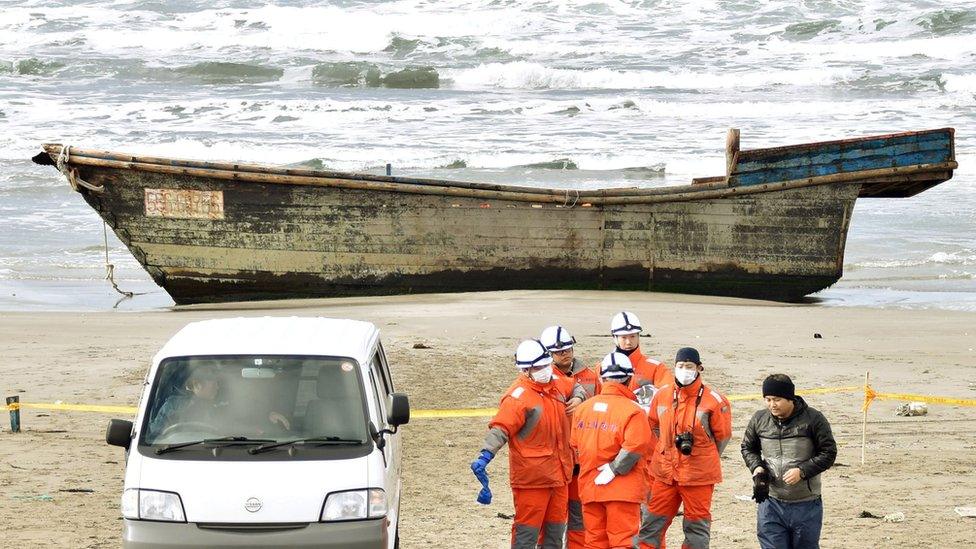
- Published7 December 2017
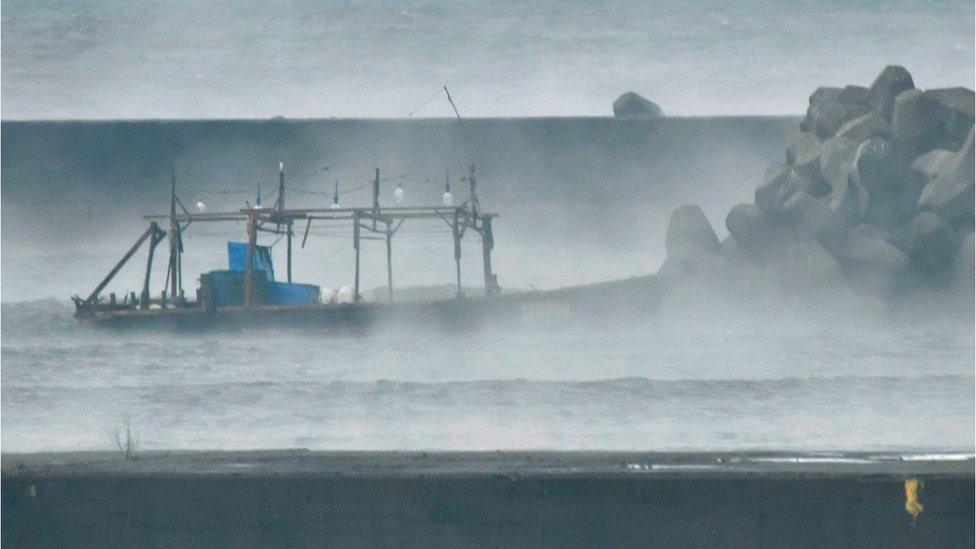
- Published26 May 2023
